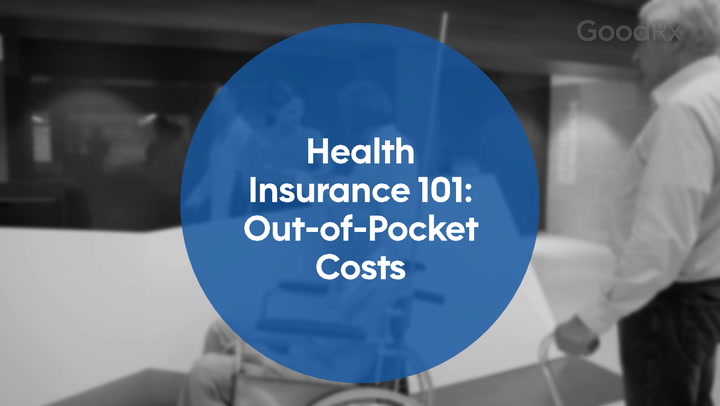What to Do When Your Health Insurance Claim Is Denied
Key takeaways:
A health insurance claim may be denied for many reasons, including medical coding errors or failure to meet your plan’s criteria for medical necessity.
Generally, you have up to 180 days to request an appeal if your health insurance claim is denied. Review your company’s appeal process and gather documents to support your claim.
You can request an external review by an independent third party if your appeal is turned down.
Let’s say you had surgery last month. And today, you received an explanation of benefits (EOB) stating that your insurance claim to cover the surgery was denied. It’s frustrating, and you may be wondering what to do next.
You’re not alone. According to a KFF survey published in September 2023, about 1 out of 5 adults with health insurance said they had a claim denied in the previous 12 months. The survey noted that most people whose claims were denied did not know they had the right to appeal the decision.
While the process may be time-consuming, you can get your insurance company to review your claim again.
Save on more than prescriptions
Unlock exclusive offers from our partners

Why do insurance companies deny healthcare claims?
Insurance companies deny healthcare claims for various reasons, including:
Data entry errors: If your name or policy number gets typed incorrectly, or if a field on an application form is left blank, it can lead to a denial.
Medical coding errors: If your healthcare professional submits an incorrect code for your diagnosis, the type of treatment you received, or the location where you received services, your claim will likely be denied.
Lack of prior authorization: In some cases, your health insurance provider may require a prior authorization or a referral before they will cover a service. However, getting prior authorization does not guarantee that your claim will be paid.
Non-covered treatment: Your health plan may not cover specific services, such as cosmetic procedures or experimental treatments.
Treatment not medically necessary: Your claim may be denied if your healthcare professional performs a treatment or service that does not meet your health plan’s criteria for medical necessity.
Exhausted benefits: If you reach the limit for a particular service or treatment (say, home visits by a nurse), your health plan likely won’t pay for additional services and may turn down your claim.
Duplicate claim: If your healthcare professional submits two or more claims for the same service that were completed on the same date, these claims might be seen as double billing and will be denied.
Coordination of benefits: If you’re covered by more than one health plan, claims may be denied until your insurers determine which plan should pay first.
Out-of-network professional: If you receive services from a healthcare professional who is outside your insurance network, your health plan may turn down your claim.
Missing documentation: If your healthcare professional does not provide enough documentation for the services you received, your claim may be denied.
Late filing: If you or your healthcare professional do not submit your insurance claim within the timeframe specified by your health plan, it may be denied.
How to appeal a denied claim
If your healthcare claim is denied, you have the right to request an appeal and ask for the decision to be reversed. Follow these steps to start the appeal process.
1. Determine why the claim was denied
Your EOB will explain the reason for the denial and what to do next. One way to learn more about the reason for the denial is to look at the remark codes on the EOB. The EOB should also include a key explaining what each code means.
Let’s say you had foot surgery and received an EOB showing that your claim was denied. To get more information about the denial, locate the remark code on the EOB and check the key to see what that code means. The code may indicate that your insurance company did not consider the service medically necessary.
2. Pay attention to your options and appeal submission timelines
The EOB should tell you how to challenge the denial and how much time you have to do so.
Read more like this
Explore these related articles, suggested for readers like you.
Generally, you have 180 days from the time you receive the EOB to appeal. Some health plans may give you more time. It’s important to review this information carefully and take note of the deadlines so that you don’t lose your chance to have the decision reviewed.
3. Take a look at your summary of benefits and coverage
Your summary of benefits and coverage (SBC) explains what services are covered and any restrictions or limitations. You can typically find the SBC by logging on to your health plan’s website.
By reviewing the SBC, you can better understand why your claim was denied and whether the denial is valid. For instance, if your EOB says the service is not covered under your plan, you can check the SBC to see whether that service is listed as an excluded benefit. If it’s not, you may be able to appeal the denial.
4. Contact your health plan
Although the EOB and letter may provide enough information about the reason for the denial, it’s wise to contact your health plan and speak with a representative. During this conversation, you can:
Ask for more details about the denial.
Clarify the steps needed to start the appeal process.
Confirm what information you need to include in your appeal documents.
It’s also a good idea to ask how many times you can appeal the denial. Some plans allow you to appeal more than once. Keep records of all your communication with the insurance company, including dates, times, details, and the names of the representatives you speak with.
In the example of your foot surgery being denied because it was not deemed medically necessary, you may also request copies of the guidelines and criteria your health plan used to make the decision.
5. Review the guidelines used
The guidelines and criteria used by your health plan to deny the claim should be provided at no cost to you. You also have the right to receive the diagnosis and treatment codes that your healthcare professional submitted. These can all help you understand how the health plan made its decision.
You can also determine whether your health plan correctly applied the guidelines to your situation. You might find a mistake or misunderstanding in the review process, which you can include in your appeal letter to create a stronger case.
6. Contact your healthcare professional
If the denial was due to a medical coding or data entry error, your professional’s office may be able to correct it and resubmit the claim to your health plan. Sometimes, your insurance company may contact your professional directly to resolve the issue.
In the case of your foot surgery, your healthcare professional can write a letter of medical necessity and provide records to support your appeal. If you received a second opinion from another specialist who agreed that the treatment was needed, include that information as well.
Many times, your healthcare professional can file an appeal on your behalf. In this case, you will need to sign a form authorizing them to do so.
7. Submit an appeal
Now that you have all the necessary information and documentation, it’s time to write your appeal letter. This first appeal is often called an internal appeal because the review is done by your health insurance company.
Some health plans will require you to complete an appeal form. Be sure to include all additional information you want your insurance company to consider in your appeal packet, including any letters or supporting documentation from your healthcare professional.
Keep any delivery tracking information and copies of all the documents you submit, especially if you’re mailing them.
8. Verify that your appeal was received
A few days after submitting your appeal, contact your health plan to confirm that they received your documents. Ask the representative for an estimate of when you should expect a response. Have your appeal information handy when you call, including the date you sent it in.
It’s important to follow up on your appeal to ensure it’s being processed and to promptly address any issues that may arise.
9. Review the appeal decision
Generally, you’ll receive an appeal decision within 30 days if you’re making an appeal for a treatment you haven’t yet received. If you’ve already had the treatment, it could take up to 60 days to hear back.
In the foot surgery example, since you already received the service, you should expect a decision within 60 days of the date your health plan received the appeal.
If your appeal is approved, your health plan should reprocess and pay the claim accordingly. But if your appeal is denied, don’t give up. There are more options. You may be entitled to a second internal appeal if your health plan allows it. If not, your next step is an external appeal.
What to do if your appeal is denied
If you didn’t get the outcome you wanted after the internal appeal process, you may be eligible to request an external appeal. This is when an outside group of medical professionals reviews the submitted information and makes a decision. Your insurance company must follow that independent group’s final decision.
The external review can be done by the state or federal government or by an independent review organization. You must ask for the external review in writing no later than 4 months after you receive the notice of denial from your insurance company.
In some cases, such as if your health plan uses an independent review organization or a state external review process, you may have to pay a filing fee. This fee is usually $25 per external review. But there’s no charge if your insurance company is using the Federal External Review Process, which is administered by the Department of Health and Human Services.
For a standard external appeal, you can expect to receive a decision within 45 days of submitting your request. In some cases — such as medically urgent situations — you can request an expedited external review, and a decision will be made within 72 hours.
Many states have a Consumer Assistance Program, which can help guide you through the external appeal process. You can also contact your state’s Department of Insurance or Insurance Commissioner’s Office for help with filing an external appeal.
What if your external appeal is denied?
If your external appeal is denied, you can try a few more steps such as:
Negotiate with your healthcare professional to lower the bill.
Contact patient financial assistance programs, local churches, or other nonprofit organizations that can offer support.
Consider hiring an attorney to take legal action against the health plan. This option may not be available for all health plans.
The bottom line
If your medical claim is denied, read your explanation of benefits to understand the reason why. Often, you can resolve the issue with a simple phone call.
In other cases, you may need to gather supporting documentation and go through an appeal process. Even if your appeal is denied, you may be able to file a second appeal or request an independent external review. If these options fail, you can ask your healthcare professional to lower the bill, get assistance from nonprofit organizations, or seek legal advice.
Why trust our experts?


References
Centers for Medicare & Medicaid Services. (2022). Reading your explanation of benefits (EOB).
Centers for Medicare & Medicaid Services. (2023). Consumer assistance program.
Centers for Medicare & Medicaid Services. (2023). External appeals.
Healthcare.gov. (n.d.). Appealing a health plan decision: External review.
Healthcare.gov. (n.d.). Appealing a health plan decision: Internal appeals.
Poland, L., et al. (2022). Claims denials: A step-by-step approach to resolution. Journal of AHIMA.
Pollitz, K., et al. (2023). Consumer survey highlights problems with denied health insurance claims. KFF.




























